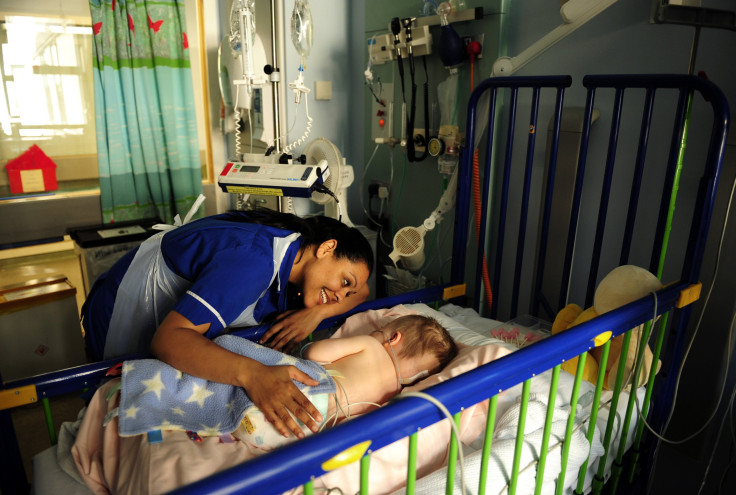Cure For Cancer Found? Two Babies With Leukemia In Remission Due To Possible Medical Breakthrough

Using what can perhaps be described as a revolutionary technique, doctors in the United Kingdom said that two babies are in remission from leukemia after more than a year, according to a Massachusetts Institute Of Technology report Wednesday. Researchers at the Great Ormond Street Hospital in London took genetically modified immune cells from a healthy donor and inserted them into the babies' bodies.
The two British infants, who were 11 and 16-months-old when the experiments were originally conducted in 2015, had undergone various other cancer treatments such as standard chemotherapy that all failed. The new experiment referred to as UCART19, involved taking immune cells, known as T-cells, from a healthy donor, modifying them and then reinserting them back into the patients’ body. T-cells are white blood cells found in the immune system that attack abnormal cells like cancerous ones and prevent them from spreading.
Researchers say their findings could ultimately lead to an off-the-shelf treatment for cancer, as the engineered cells taken from a healthy host would be universal and able to be inserted into anyone’s veins at any given time. Researchers now plan on testing the groundbreaking approach to curing cancer on more children and adults to see if they can duplicate the “staggering” results.
"While both patients are now at home and are doing well, we must treat these results with some caution as we don't yet know if the technique will be successful in treating a larger number of patients," said Waseem Qasim, a consultant immunologist at the London hospital, according to Reuters.
The other hottest medical advancement in the fight to cure cancer is called “T-cell cancer therapy," which was created in the labs of Stanley Riddell, an immunotherapy researcher at Fred Hutchinson Cancer Research Centre in Seattle, the Guardian reported in February 2016.
"T-cell therapy" is conceptually similar to UCART19 as it is predicated on combatting the spread of the cancer cells in the body by inserting genetically fortified T-cells, but is different because it involves taking the patient’s own T-cells, chemically re-engineering with added “receptor” molecules targeting a specific cancer, and then reinserting them. Those who have cancer suffer from losing a tremendous amount of T-cells, which allow cancer cells to quickly spread.
While the two infants have been the only two recipients of the UCART19 experiment, the most promising study of “T-cell therapy” tested 35 patients with acute lymphoblastic leukemia (ALL) and found that 94 percent went into remission. The study also found that 50 percent of the 40 patients tested with lymphoma went into remission.
Julianne Smith, vice president of the UCART19's development for the biotech company Cellectis, which bought the rights to the technology, said patients receiving the UCART19 approach could be treated immediately, as opposed to taking cells from a patient and waiting for them manufacturing in a lab. She also said the UCART19 approach would be far cheaper.
“We estimate the cost to manufacture a dose would be about $4,000. That’s compared to a cost of around $50,000 to alter a patient’s cells and return them,” Smith told reporters.
There are roughly 14.5 million Americans diagnosed with cancer, according to a report from the National Cancer Institute from March 2016. That number is expected to be greater than 19 million by 2024. Close to 39.6 percent of Americans will be diagnosed with cancer at some point in their lives.
© Copyright IBTimes 2024. All rights reserved.












